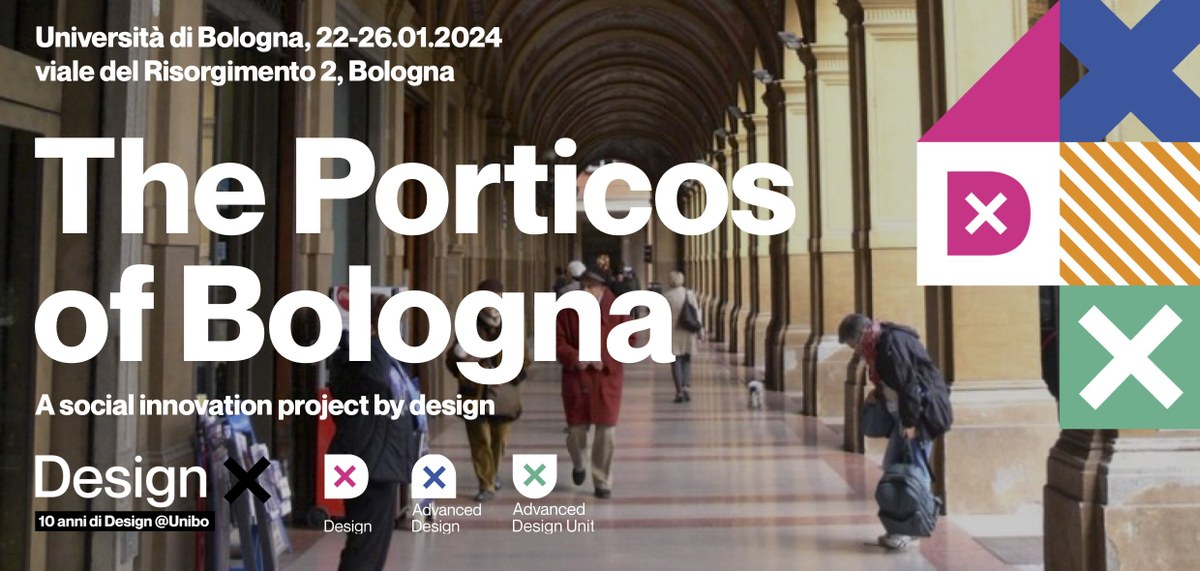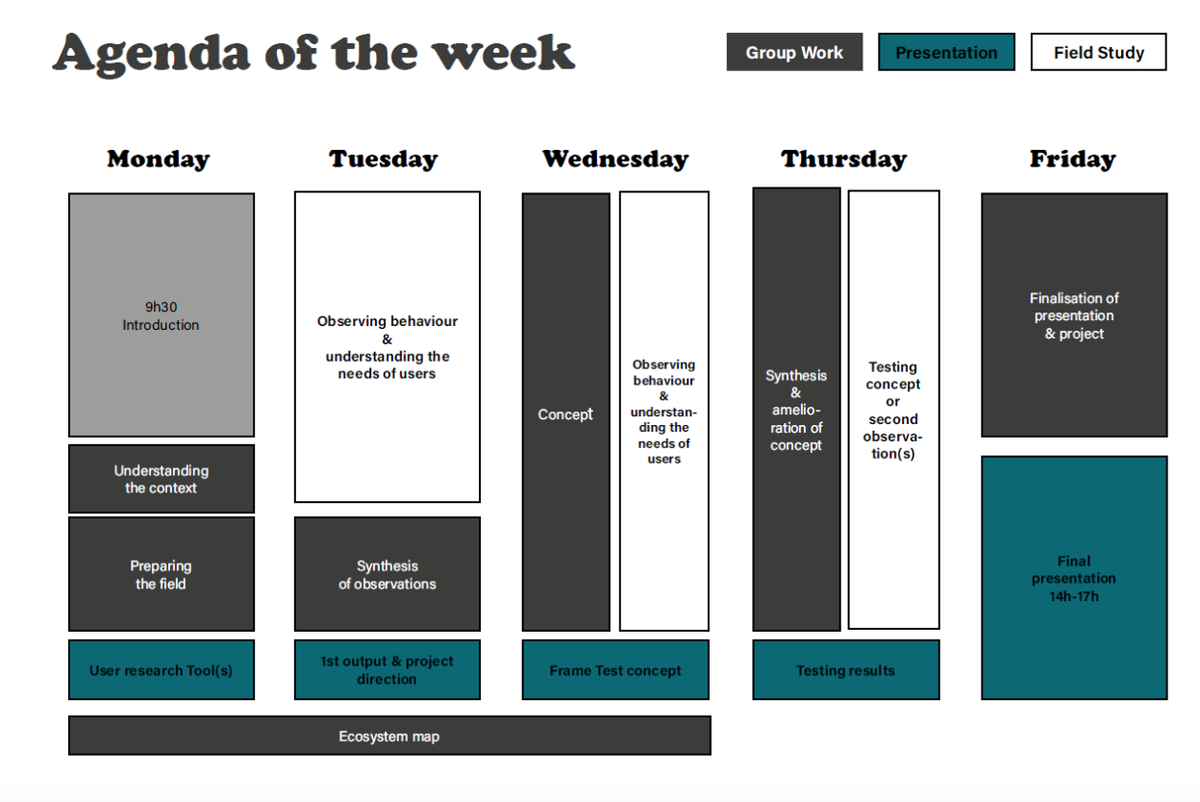The Porticos of Bologna
A living heritage. A social innovation project by design

The Porticos of Bologna: a living heritage
A social innovation project by design
How to experience the city as students between tourists and citizens?
International Workshop in SERVICE DESIGN in collaboration with University of Nimes
The Porticos of Bologna stand for a Millennium old urban habitat. No other city in the world has as many porticos as Bologna: all together, they cover more than 38 kilometers only in the historic center, but can reach up to 53 kilometers if those outside the medieval city walls are also considered. On account of their cultural and artistic significance, in 2021 the porticoes of Bologna have been declared a UNESCO World Heritage Site. (Wikipedia).
This context, rich of history by the history of the same palaces that constitutes the porticos, is rich of social life and opportunities for the unique urban, social and economic life that happens there not only when it rains. Nevertheless, huge parts of it are unused, a little neglected or not perceived as opportunities.
Bologna is known as well for having been the medieval Manhattan with hundreds of family towers. Today few remains, and is a threatened to get lost by improper use of the urban space, as we can witness by the current emergency to safe the Garisenda Tower.
The third aspect to consider is that Bologna hosts the oldest ongoing University in the World, founded 1088 by the wish of a group of students to be taught by teachers. Today Bologna seems to be a City Campus of the University with a large number of buildings distributed among the entire city.
The idea of the workshop is to start from these three characterizing elements and focus on Students’ Life in a City of Citizens and Tourists, with its opportunities and problems. How can the medieval context of the city keep on being an attractive space for contemporary needs of multiple users?
Objective of the workshop is to develop possible solution related to product-service systems.
Aimed at students in the Master's Degree Course in Advanced Design of Services and Products and the 3rd year of the Bachelor's Degree Course in Industrial Product Design.
To register, please fill in the form https://forms.office.com/e/Ngku9D6zyK
Animation:
Zoé Bonnardot, urban & social designer, teacher and researcher in Ecole Supérieure de Design de Troyes
Michela Deni, Full professor in Unîmes, University of Nîmes
Valentina Gianfrate, Professor, University of Bologna
Elena Formia, Professor, University of Bologna
Laura Succini, Researcher, University of Bologna
Andreas Sicklinger, Professor, University of Bologna
Organisation:
Students will work in mixed groups (from the University of Bologna and Nîmes) during the week. The main theme will be the city of Bologna, through the prism of its cultural identity: academic, gastronomic and architectural (or artistic). On Monday morning, the students will be given some information by the team, and will then choose more specific areas and users to work on. Over the course of the week, they will meet with local residents and other key players in the city to discuss these issues. They will be given a number of methods and best practices to help them in the field. On the basis of this meeting, the students will develop proposals for design solutions that they feel are appropriate for both the users and the city of Bologna, taking into account the complexity of the subject, which is considered to be systemic.
The team will accompany the students throughout the week to help them develop a proposed solution, which will be presented on Friday afternoon.
Places to go & users to meet:
The university provides with the halls 0.4 and 0.6 at the ground floor of Viale Risorgimento, School of Engineering
Sub-subjects proposals:
Architecture (the arcades + the tours)
Cultural aspects (museum)
University (historical aspect and the feeling of “university city”)
Food (aging & tourists)
Students
from Nîmes : 11 (or 10) - 1st year of master
from Bologna : 10 - masters and 3rd year of Bachelor
Need for the workshop :
Roll of craft paper for the research phase
Pen and material to draw and prototype

Temporary Agenda